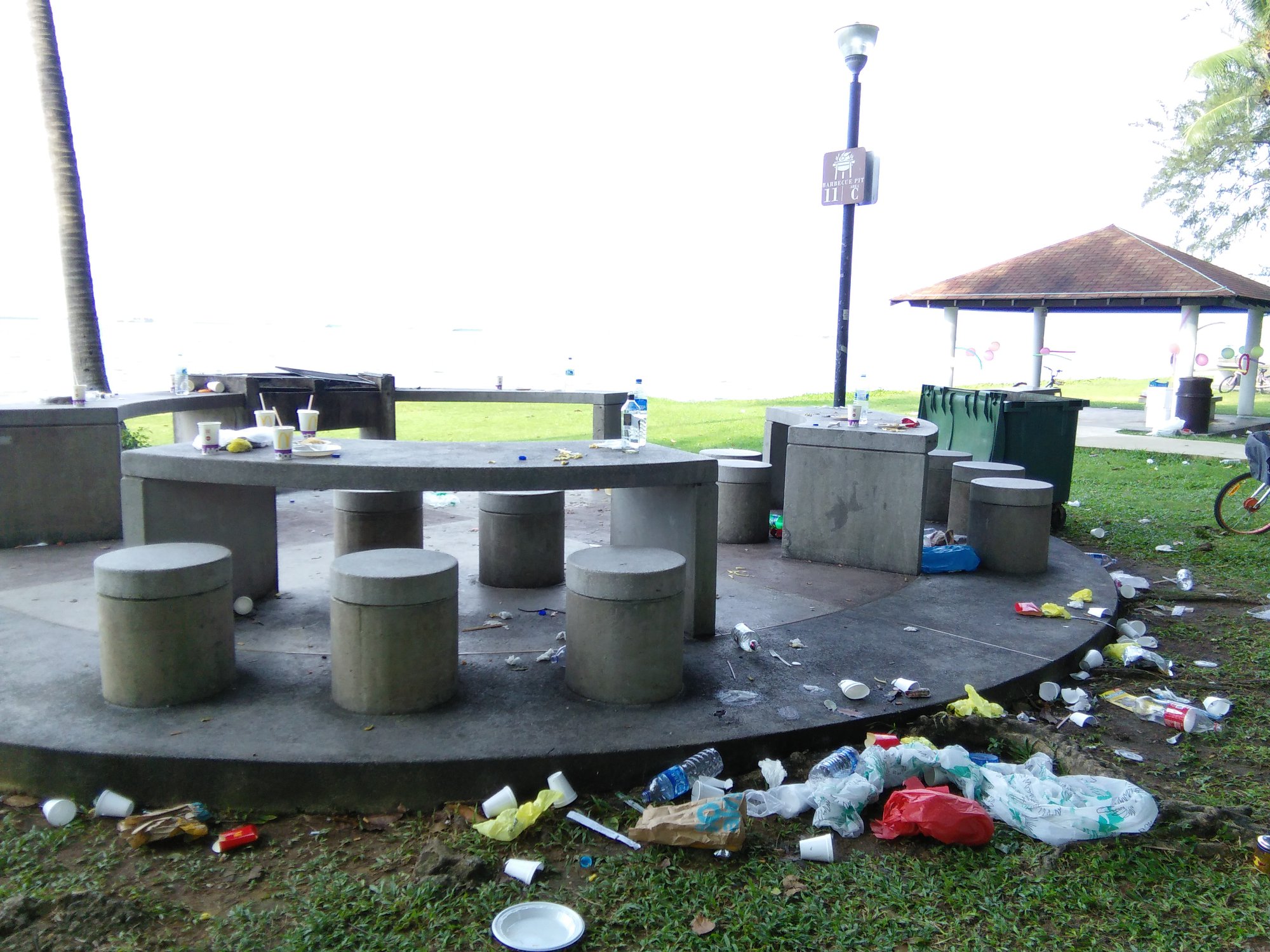If you are a regular park-goer in Singapore, you might have recently noticed large volumes of trash washing up on our beaches, particularly those at East Coast Park.
Many were shocked by the sight of photos of the park's beaches littered with long lines of flotsam — marine debris that gets washed ashore — that circulated online earlier this year.
It was determined to have mostly originated outside Singapore, washed ashore by the Southwest monsoon.
You can see it in this video by Reddit user XXIIIBLAST:
[video width="608" height="1080" mp4="https://static.mothership.sg/1/2019/06/DASH_1080-1.mp4"][/video]
To cope with the mounting piles of trash washing ashore at all times of every day, these beaches are now being cleaned more frequently, with rounds of clean-ups happening up to twice a day as opposed to the usual four times per week.
9-hour days, starting at 6am
Ramky Cleantech Services is one of the companies hired by the National Environment Agency (NEA) to keep Singapore's beaches trash-free.
According to The New Paper (TNP) on June 24, 10 workers from the firm, decked out in neon shirts and vests, are gathered at East Coast Park before sunrise.
The men start their day cleaning and tidying up areas like the barbecue pits. By 7am, they move on to the beaches.
It was reported that the team of 10 is responsible for a 1.6km stretch along East Coast Park.
The team cleans the beach from 7am till noon, before another takes over for the afternoon shift. The second shift cleans the beaches till 7pm, while the first shift will continue cleaning the rest of East Coast Park until 4pm.
The accumulated trash is then sent to be incinerated or recycled.
90 per cent increase in flotsam washing up on beaches
In the course of their cleanups, the workers find not just human waste such as plastic bottles and styrofoam containers, but also other materials like driftwood and sometimes even the carcasses of dead animals.
TNP reported that on some days with a lot of flotsam, the workers can collect up to 1,000kg of trash and debris in a single day.
A manager at the cleaning company told TNP, "When I was younger, seaweed used to wash ashore. Now it is trash."
It is simply impossible to eliminate the amount of marine debris washed ashore since each high tide brings in a new batch of flotsam.
According to the National Environment Agency (NEA), some 2,000 tonnes of flotsam was collected solely off East Coast Beach in 2018.
Half of this, according to the NEA, came during the Southwest Monsoon period from around June to September.
Similarly, beaches along the northern coast of Singapore also receive more flotsam during the Northeast monsoon, a period between December and early March.
We're still basically slobs
While flotsam found on the beaches can be blamed on offshore sources, the park itself isn't litter-free — areas like barbecue pits often suffer the effects of park-goers who don't clean up after themselves.
 Photo via Little Green Men / FB
Photo via Little Green Men / FB
Cigarette butts were also recently pointed out to be one of the most commonly-littered items on Singapore's beaches.
These are small and hard to spot, perhaps giving rise to the perception that it is easier to flick to the ground, despite existing hefty fines in place for litterbugs.
Evidence also indicates that the cigarette butts are local in origin — they're found mostly on beaches accessible to the public, and are rare in inaccessible places like mangroves.
Tough.
Top photo via Greenpeace Singapore
Content that keeps Mothership.sg going
??
How to make your Asian mum proud of you once and for all. Don't say we never teach.
??
Click here for rabak artist impressions of your neighbourhood. Pls don't laugh we tried our best.
??
How long do you take to get to work? Very shag hor.
?️?
Want to go Japan this year or not??
If you like what you read, follow us on Facebook, Instagram, Twitter and Telegram to get the latest updates.
